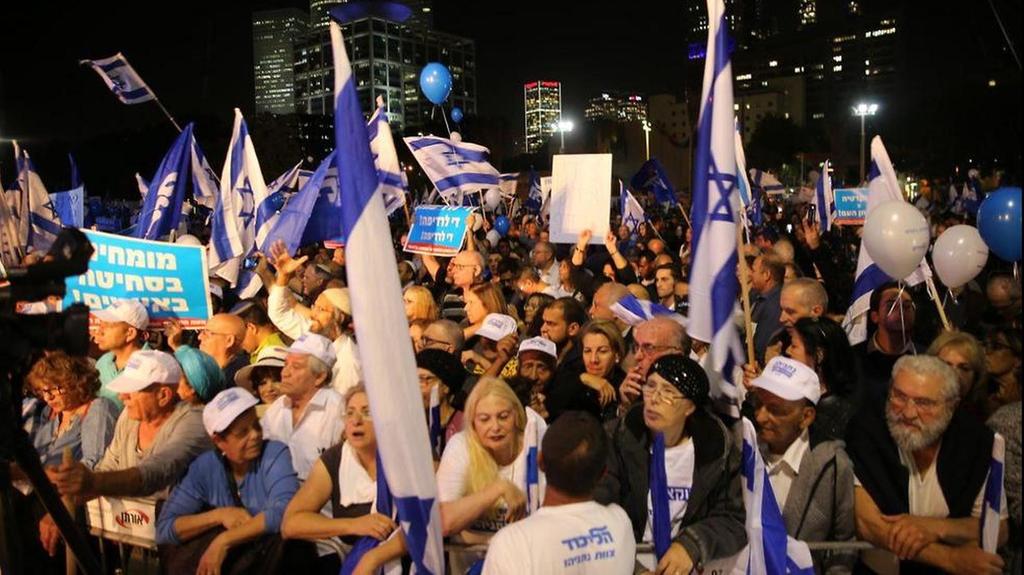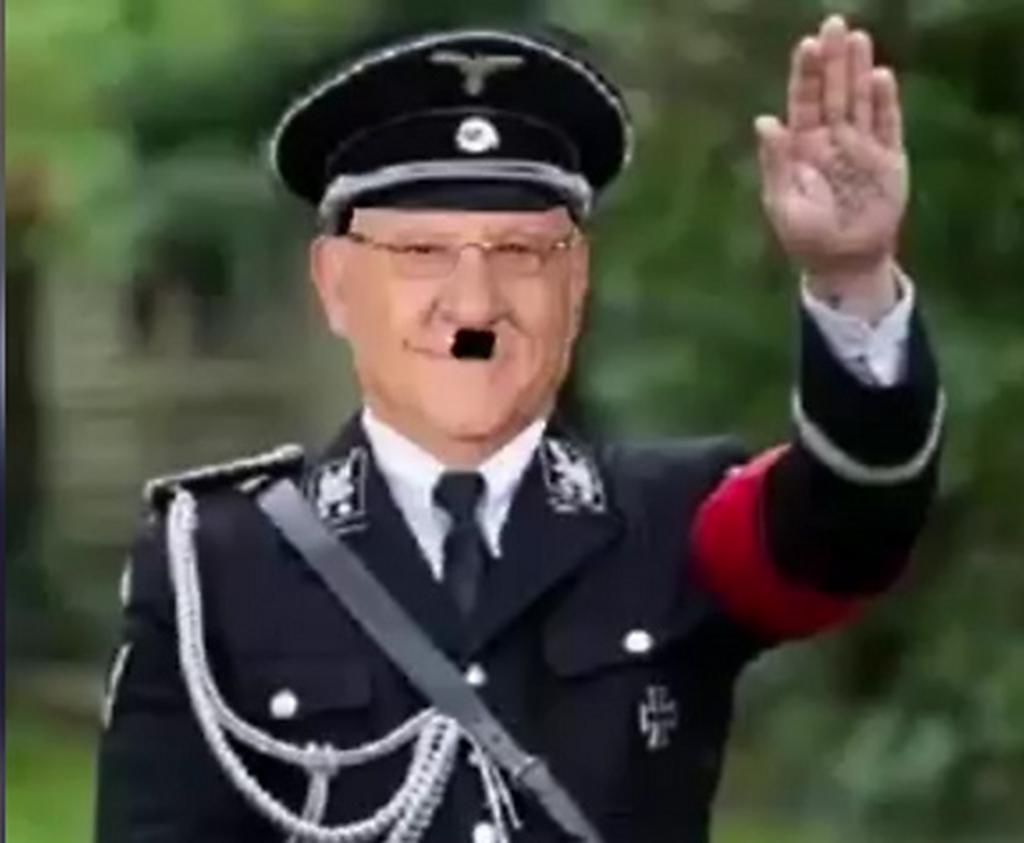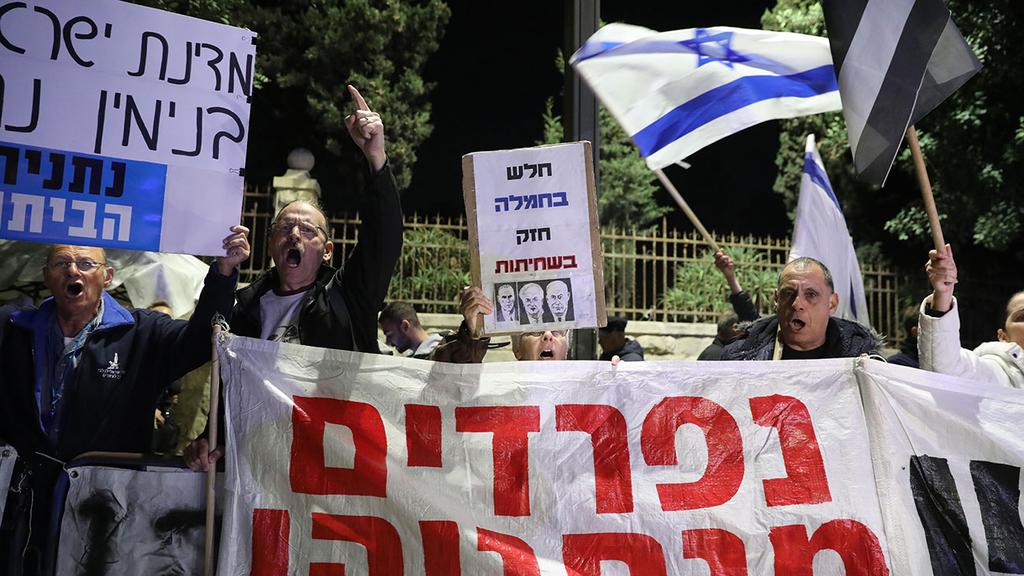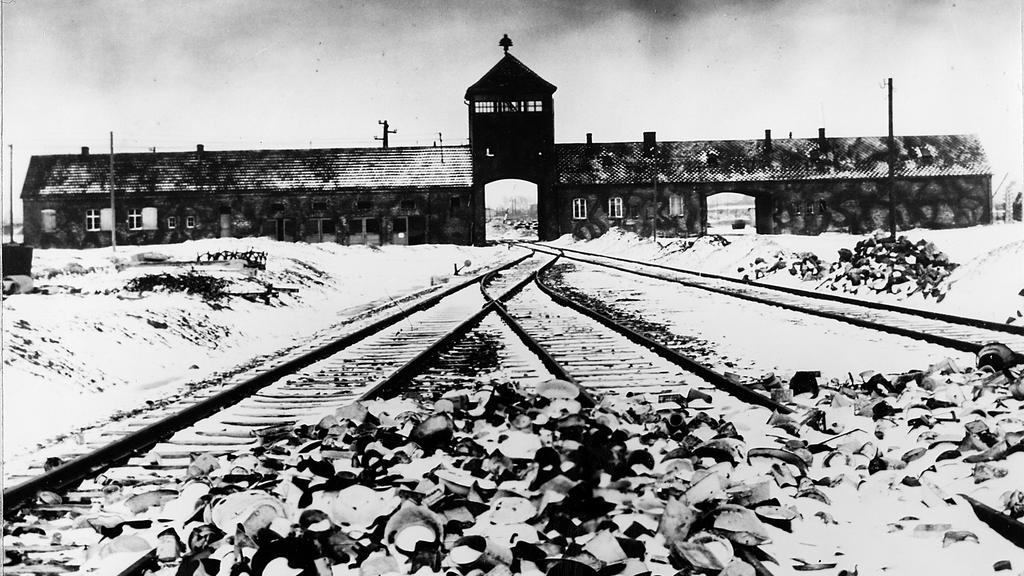Getting your Trinity Audio player ready...
Did you got out to protest and somehow didn't call a single policeman a "Nazi"? If not, then it apparently doesn't count.
Eighty years after World War II broke out, 75 years after the Allies liberated those human shells - scourged by the fires of hell - from the concentration and death camps, we find ourselves deeply in a strange reality.
4 View gallery


Protesters attend a demonstration against indictment of Benjamin Netanyahu in Tel Aviv
(Photo: Moti Kimchi)
Controversial Orthodox intellectual Professor Yeshayahu Leibowitz was first to coin the outrageous phrase "Judeo-Nazi" and as tensions within Israeli society deepen, the term "Nazi" has become ubiquitous in almost every protest.
We saw Benjamin Netanyahu's supporters exclaim "Nazi!" at last week's right-wing demonstrations - but so have the prime minister's opponents at left-wing demonstrations.
The use of this awful term is rife across all sectors of Israeli society – ultra-Orthodox, Ethiopians, secularists, right-wing and left-wing. Everyone has their own "Nazis."
4 View gallery


President Reuven Rivlin is depicted in Nazi uniform and with a Hitler mustache in a video posted on YouTube
(Photo: Screenshot)
Journalists and policemen are very popular victims, but the epithet can be hurled at anyone who dares to think differently, and this behavior is more indicative of the ignorance of those who use it than anything else.
The cynics will tell you that the term "Nazi" is so overused that it has lost its bite and is no longer offensive.
Those who are frequently on the receiving end of this derogatory term may have already gotten used to it, I haven't checked, but the problem is the memory and the honor of the Nazis' victims are being trampled.
The widespread use of the name of those behind the Holocaust is disrespectful towards the six million who have perished, their suffering and the suffering of the survivors and their offspring; and insults them even more than those at whom the insults were targeted.
4 View gallery


A protest against Prime Minister Benjamin Netanyahu following his indictment last month
(Photo: EPA)
The use of this term in political demonstrations minimizes the cruelty of the original Nazis – there is not a single police officer in Israel, even the cruelest one, who comes even close to any S.S. soldier strolling along the platforms in Auschwitz, Treblinka or Majdanek.
They cannot and can never compare to those who opened the heavy wooden wagon doors of another death train (which usually ended with more dead passengers than live ones) and screamed "schnell, schnell" (quickly, quickly) as dogs barked loudly and the lights from the guard towers blinded their victims.
No form of crowd control, no matter how inappropriate and worthy of criticism, compares to these moments of horror on those platforms.
There is no form of suffering in Israel of 2019 that we can liken to a single day in Auschwitz-Birkenau or a single hour next to the murder pits in Paneriai, Lithuania.
There isn't a single journalist in Israel, even the most xenophobic of them, that who begins to resemble the Nazi soldiers who tore babies out of their mothers' arms, separated parents from their children - naked as on the day they were born - and systematically shot them as though on a conveyor belt.
And maybe this year, the 80th anniversary of the beginning of the inferno and the 75th anniversary of its end, we will take upon ourselves to bridle our speech, even when bombarded with insults during a heated argument – in the name and memory of our brethren who were massacred across the European continent.
We must respect those whose opinions we oppose. We can protest and express our pain, but we must do it in a respectful manner.
We must stand together and avoid calling anyone a "Nazi" unless they're a member of a neo-Nazi party, and heaven knows there are more than enough of them in today's world.


